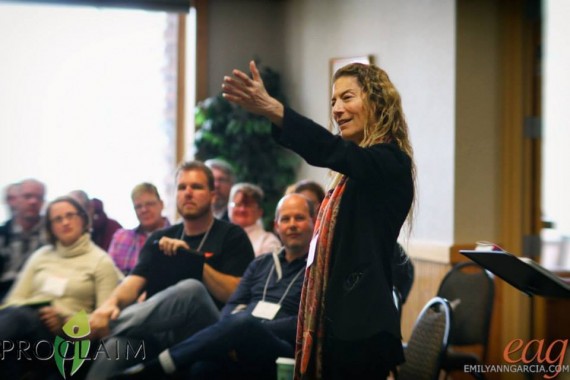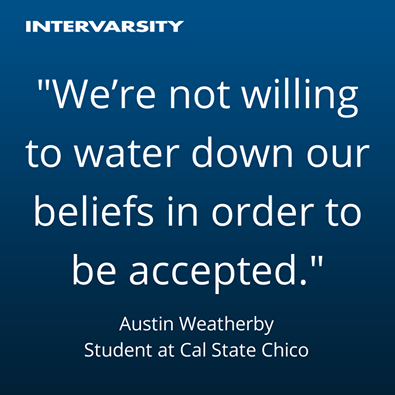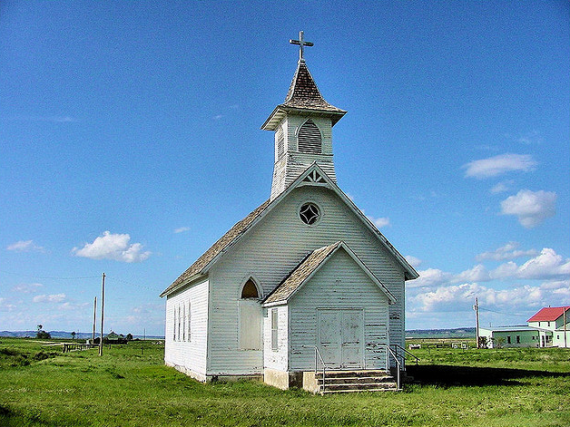
I am excited to announce that Alexia Salvatierra is going to be a regular monthly writer here on Release The APE. She is excited to partner with us to help fill out the role of the prophet Biblically and in today’s culture. We are so excited to have her join our team! You can read more about her in her bio below the post.
While the call to social transformation is increasingly common in the evangelical world, it often seems to be an extra-credit project. Prophets are nice to have around but not an essential part of preaching the Gospel. (Of course, real prophets are not always nice to have around – but that’s next month’s blog!)
I think that CEO of World Vision USA Rich Stearn’s book title says it well – “The Hole in the Gospel.” When the transformation of the whole world is not a core component of the preaching of the Gospel, then we are making our God too small and our witness suffers. My 21 year old daughter’s generation is particularly sensitive to the presence of the “hole” (or the absence of the whole); one of her friends said to me recently that she is only interested in a Jesus that transforms the world.
Why is the prophetic dimension of the Gospel so critically important? One of the church fathers said, “Preach the gospel at all times; when necessary, use words.” At Pentecost, the first disciples emerged from the upper room to preach the Gospel in all the languages spoken by all of the hearers. Actions are a language. What do our actions say about our God? We read in James that “faith without works is dead.” How does our message communicate consistently that our God is alive? Of course, this can be heard as an argument for social action but not necessarily for prophecy (defined as the speaking of truths and the living out of truths that change whole communities and societies – not just individual lives.) We only understand that the full communication of love requires the biggest possible transformation when we realize that it is not only the fact of God’s love that we need to communicate but also the full power of that love. Satan is the king of this world, but the kingdom of God is breaking into the world and it is neither weak nor impotent. As the old Irish hymn based on the Magnificat says, because of the resurrection of Jesus Christ, “the world is about to turn.”
Bishop Medardo Gomez of the Lutheran Church of El Salvador presides over a church body that serves the poorest of the poor in his country. They have churches spread through the most remote mountains and the most broken down urban slums. During the civil war, Lutheran pastors were often killed for standing up for the basic human rights of their congregants and neighbors. When the right wing death squads killed four Jesuit priests at the University, they went afterwards to search for Bishop Gomez.
The Bishop was out of the country at the time, so they took the cross which hung on the wall of the cathedral. On Ash Wednesday, the members of the congregation had written all of their individual and collective sins on the wood of the cross, including the torture and persecution carried out by the death squads. The captors of the cross called it a “subversive” cross. When Bishop Gomez returned, instead of hiding out in fear, he recruited the ambassadors of various countries to accompany him to the military prison and demanded the return of the cross. They returned it to him and it now hangs in the cathedral under a sign that reads “The Subversive Cross.” Pastors of the Lutheran church of El Salvador are still being martyred – now no longer by death squads but by powerful gangs; their fearless resistance to evil and their protection of the victims of injustice in the name and spirit of Jesus Christ still costs them their lives. I wish that every Lutheran seminarian in the U.S. had to spend a year with the Lutheran Church of El Salvador to learn whole Gospel discipleship. The prophetic gifts and role are not separate from evangelism; they are intrinsically and intimately intertwined – part and parcel of the Gospel.
[This was written in response to “Evangelism Must Be Tied To The Prophetic“]









 construct our network, all in an attempt to build Kingdom influence in the communities we’re trying to reach. The paradigm looks something like this.
construct our network, all in an attempt to build Kingdom influence in the communities we’re trying to reach. The paradigm looks something like this.